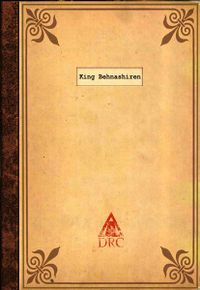Reference:DRC research notebooks/King Behnashiren
 | |
| Location | Hall of Kings, Ae'gura |
|---|---|
Behnsahiren took the throne in 2070 at the age of 20 (a record that was never surpassed). He was extremely young to inherit the throne, and his short reign displayed his immaturity.
It was said that there was never any control or leadership from the throne while Behnashiren sat in it. As a result, the people were forced to look elsewhere for some kind of trust or hope. Most turned to religion, leading to many more factions and cults. Many claimed healing powers, either from nature, special leaders, or Yahvo himself, through a variety of different means.
It seems clear that Behnashiren wavered in his stance on just about everything, including religion. In some speeches, he begged Yahvo for healing, while in others, he sought for help from The Tree. In the meantime, he was of no help to the Healers or Chemists, both of which were working hard to find a cure. In fact, some of Behnashiren's speeches point to public condemnation of the Guilds, accusing them of "shallow efforts" and "failing their own people." Those who held faith that any cure existed outside of miracles and/or special potions were few and far between.
The population continued to die, and the amount of children born decreased tremendously. Behnashiren himself died in 2193 at the young age of 143 without any descendants to leave the throne to. In fact, so few children were being born that Behnashiren had trouble choosing an heir, even from his own staff.[1] As a result, he chose his 179-year-old uncle to take the throne after his death. It was later said that some higher power must have been involved in such a choice, as Behnashiren was "far too ignorant to choose an heir that made so much sense."[2]